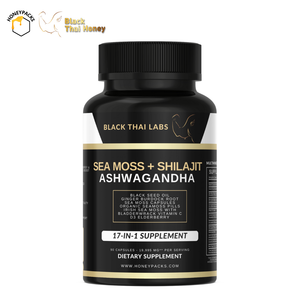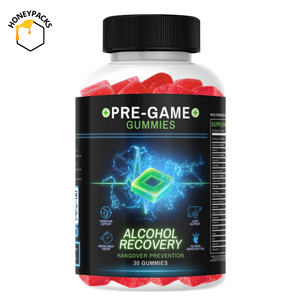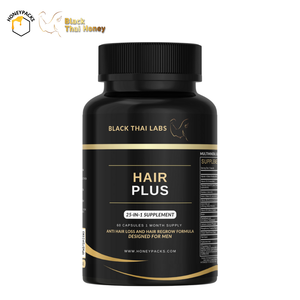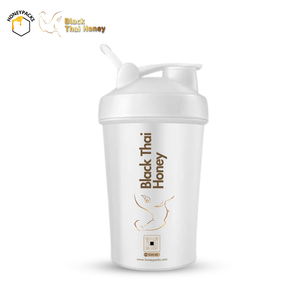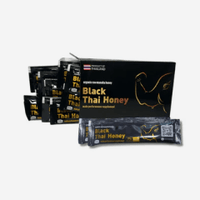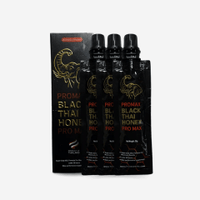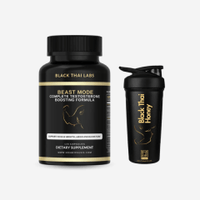Natural Ways To Increase Fertility: Proven Daily Strategies
You can boost fertility naturally by improving diet, managing stress, supporting hormone balance, and using targeted supplements like CoQ10, black ginger, and maca. Avoid toxins, processed foods, and over-exercising to support sperm and egg quality.
Trying to improve fertility doesn’t mean jumping straight into synthetic hormones or invasive procedures. In fact, the most effective changes often begin at home, with what you eat, how you move, and how you support your hormones. Whether you’re just getting started or feeling stuck in a frustrating delay, there are proven, natural strategies that can optimize both sperm and egg health, without relying on prescriptions or quick fixes.
Here’s a snapshot of what works:
- Eat antioxidant-rich foods and healthy fats to support hormone function
- Use fertility-focused herbs like black ginger, maca, and Butea Superba
- Stay hydrated to improve cervical mucus and sperm motility
- Avoid hormone disruptors like BPA and excessive caffeine
- Build emotional resilience during fertility challenges

If you’re looking for the full breakdown of what really moves the needle when it comes to natural fertility support, keep reading. We’ve got everything you need to take back control, step by step.
Fix the Foundation First: Sleep, Stress & Hydration
When fertility feels like a mystery, the first place to look is your daily routine, not your supplements or cycle-tracking app.
Sleep, stress, and hydration might not be as flashy as superfoods or supplements, but they lay the groundwork for everything else to work.
Sleep affects your hormones
Inconsistent sleep disrupts the production of critical fertility hormones like LH, FSH, and testosterone. For men, even short-term sleep loss can reduce sperm count and motility. For women, irregular sleep cycles may interfere with ovulation.
Chronic stress can shut down fertility
The body doesn’t prioritize reproduction when it’s in survival mode. Elevated cortisol from ongoing stress throws off your hormonal rhythm, blocking ovulation and impacting sperm health.
Water is a fertility essential
Hydration supports cervical mucus production (vital for helping sperm reach the egg) and aids in flushing out toxins that interfere with hormonal balance.
I’ve been doing everything right, so why isn’t it working?
These lifestyle basics are often the missing piece. Without sleep, stress management, and hydration, even the best supplements and diets can fall flat.
The Fertility Diet: What to Eat and Avoid
Food is more than fuel, it’s biochemical communication with your reproductive system. The right nutrients can balance hormones, protect your eggs and sperm, and prime your body for conception.
Fertility-Boosting Foods
- Go Mediterranean: A fertility-friendly diet often mirrors the Mediterranean way: fish, olive oil, legumes, leafy greens, and whole grains. This style of eating is linked to higher IVF success and better egg quality.
- Don’t fear full-fat dairy: Studies suggest women who consume full-fat dairy have lower rates of ovulatory infertility than those who opt for skim or low-fat.
- Load up on iron + vitamin C. Leafy greens, lentils, and beans supply non-heme iron. Combine them with citrus or bell peppers to boost absorption, especially helpful if your iron levels tend to run low.
- Omega-3s for hormones: Salmon, sardines, flaxseeds, and walnuts support hormone production and reduce inflammation, which can hinder fertility.
- Tomatoes, citrus, and nuts for sperm: Lycopene (from cooked tomatoes), vitamin C, and vitamin E have been shown to support sperm motility, count, and structure.
What to Cut Out
- Refined carbs, processed meats, sugary snacks: These spike insulin and drive up inflammation, both of which disrupt hormonal balance.
-
Caffeine and mercury caution: Stick to under 300mg of caffeine per day and choose low-mercury fish like sardines or salmon over tuna or swordfish.
Do you have to give up everything to see results?
Not at all. Fertility nutrition isn’t about perfection, but about consistency. A balanced, real-food diet does more than a week of restriction ever could.
Supplements That Can Help
Supplements can be powerful tools, but only if you know which ones matter. Here’s what’s backed by research, plus natural options that support hormone production from the ground up.
Backed-by-Research Supplements
- CoQ10 or Ubiquinol: These compounds improve mitochondrial function in eggs and sperm. Ubiquinol is a more bioavailable form and often preferred for absorption.
- Prenatal vitamins: Not just for pregnant people. Folic acid, B12, and vitamin D support early development and fertility when taken 2–3 months before conception.
- Non-heme iron: Crucial for women with heavy periods or low stores. Pair with vitamin C for better absorption.
- B100 complex: Helps regulate the luteal phase and may increase implantation chances.
- Vitamins C and E: Antioxidants that neutralize oxidative stress, known to harm both eggs and sperm.
Supplements with Natural Testosterone or Estrogen Support

- Black Ginger: Enhances nitric oxide, which improves blood flow to reproductive organs, a game changer for libido and sperm quality.
- Maca: A hormone-balancing root traditionally used for stamina and libido in both men and women.
- Butea Superba: Supports natural testosterone production, making it a smart choice for men looking to optimize hormonal health.
- Cynomorium Songaricum: A lesser-known herb that promotes hormone signaling and overall vitality.
Is ubiquinol really better than CoQ10?
Yes, for most people, it absorbs more efficiently. But both offer fertility benefits. Choose the one that fits your body and budget.
There are too many supplements, where do I start?
Start small. Pick 2–3 core supplements based on your needs, track how you feel over a few weeks, and adjust from there.
Optimize Egg & Sperm Health
Fertility is about both your hormone levels and the health of your cells. Egg and sperm quality have a direct impact on whether conception occurs and how viable that pregnancy will be. The good news is that you can influence both through simple, sustainable habits.
Daily Habits That Impact Reproductive Cells
- Antioxidants defend your DNA: Eggs and sperm are vulnerable to oxidative damage, especially as we age. Antioxidant-rich foods and supplements, like vitamin C, vitamin E, and lycopene, protect reproductive cells by neutralizing harmful free radicals.
- Ditch the toxins: BPA (in plastics), phthalates (in scented products), and cigarette smoke disrupt hormones and damage DNA. Filter your water, use glass containers, and choose fragrance-free products when possible.
- Keep things flowing: For men, regular ejaculation (every 2–3 days) improves sperm motility and reduces DNA fragmentation. For women, maintaining cervical mucus quality through hydration and diet supports sperm movement.
- Exercise in moderation: Moving your body improves circulation, hormone sensitivity, and stress response. But too much high-intensity training, especially in women, can suppress ovulation.
- Watch your weight, not your willpower: Being underweight or overweight impacts hormone production and ovulation. Aim for balance, not thinness or perfection.
A common myth is that egg quantity is everything.
Not quite. Egg quality, how healthy and genetically intact those eggs are, is far more important. And unlike quantity, quality can be influenced by your daily choices.
Busting Fertility Myths and Misleading Advice
It’s easy to get lost in the noise when trying to conceive. But let’s cut through the clutter and get to what actually matters.
Myth: Natural methods don’t work
Clinically studied herbs like black ginger, maca, and CoQ10 have shown measurable improvements in circulation, hormonal balance, and sperm motility. Natural doesn’t mean ineffective, it means aligned with your biology.
Myth: Only women need to prepare
Half of fertility issues stem from male factors. Supporting sperm health through antioxidants, nitric oxide boosters, and lifestyle changes is essential, whether you're trying to conceive naturally or through IUI/IVF.
Myth: You need a perfect diet
Nutrition matters, but so do emotional health and consistency. A few balanced meals and stress reduction strategies will go further than a week of obsessive fertility cleansing.
What about pineapple cores and warm socks?
While rituals like eating pineapple core post-ovulation, keeping feet warm, or sipping pomegranate juice may not have robust clinical backing, they can offer emotional grounding. Placebo or not, they remind us that care and belief matter too.
Emotional and Mental Health During the Journey
Fertility struggles are about biology, resilience, hope, and navigating setbacks without burning out.
- Acknowledge the setbacks: Whether it’s low follicle count, delayed ovulation, or a failed IUI cycle, discouragement is natural. These moments don’t define the final outcome.
- Don’t let diet become a trigger: If you’ve had a history of disordered eating, rigid fertility diets can do more harm than good. Choose nourishment over control, and work with a practitioner who respects that line.
- Fertility is a team effort. If you have a partner, their habits matter too, sleep, hydration, nutrition, and emotional presence all play a role. Show up for each other.
How do I keep going when results are discouraging?
Anchor yourself in the long game. Fertility isn’t linear. Progress often looks like consistency, showing up for your body, day after day, even when the results take time.
Smart Timing & Tracking Without Obsession
Understanding your cycle can empower you, but it shouldn’t control you.
- Track for awareness, not anxiety: Ovulation predictor kits (OPKs), cervical mucus patterns, and basal body temperature can help identify fertile windows. But they’re tools, not verdicts.
- Timing is key: The best chance for conception is 1–2 days before ovulation and the day of. You don’t need to schedule intimacy down to the hour, relational connection and reduced pressure also matter.
-
Avoid the stress spiral: Over-scheduling, over-tracking, and under-relaxing can backfire. Stress hormones like cortisol can suppress the very fertility hormones you're trying to enhance.
Are you obsessing too much?
If tracking feels more like control than care, it’s okay to pause. Let your body lead for a while, and trust that you've laid the foundation.
When to Get Professional Help
Natural strategies are powerful, but they’re not a substitute for medical clarity. Knowing when to bring in professional support can help you move forward with confidence, not confusion.
- Follow the 6–12 month rule: If you’re under 35 and haven’t conceived after 12 months of trying, or over 35 and it’s been 6 months, it’s time to consult a fertility specialist.
- Run the right labs: A comprehensive hormone panel can reveal key fertility blockers like thyroid dysfunction, low progesterone, or imbalanced testosterone. For men, a semen analysis is just as essential.
- Rule out silent factors: Conditions like PCOS, endometriosis, or low sperm motility can go undetected for years. Diagnosis doesn’t mean defeat, it means direction.
- Pair clinical with natural: Use supplements, nutrition, and stress support to amplify, not replace, what your doctor recommends. This isn’t either-or. The most successful fertility journeys are collaborative.
If you're a man looking to optimize your role in this process, Honey Packs offers a natural path forward. Our formulas are built with clinically relevant doses of herbs like black ginger, ginseng, and Butea Superba, supporting blood flow, hormone balance, and stamina without synthetics or sketchy shortcuts. Whether you're preparing for conception or just trying to feel more energized and in control, we’re here to help you show up at your best.

Long-Term Fertility Is a Lifestyle, Not a Sprint
Fertility goes beyond one egg, one sperm, or one perfect cycle. It’s about your entire system working in harmony: hormones, nutrition, stress response, circulation, sleep, and mindset.
The path to conception may not be linear. But with the right daily habits, nourishing routines, and smart support (both natural and clinical), you’re giving your body the best possible chance, not just to create life, but to thrive in your own.
You’re not broken. You’re rebuilding. And that starts now.
If you're ready to take that next step with natural support, Honey Packs is here to walk with you. It is backed by science, inspired by tradition, and built for men.

